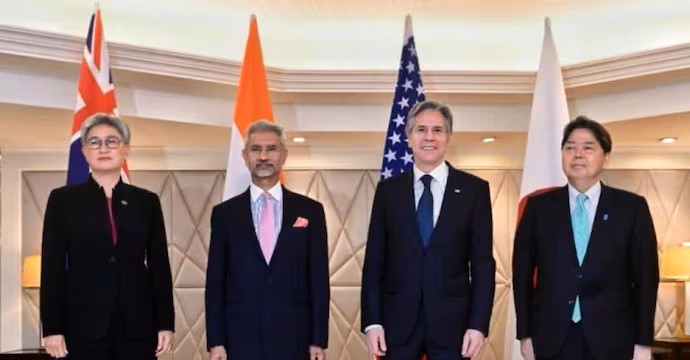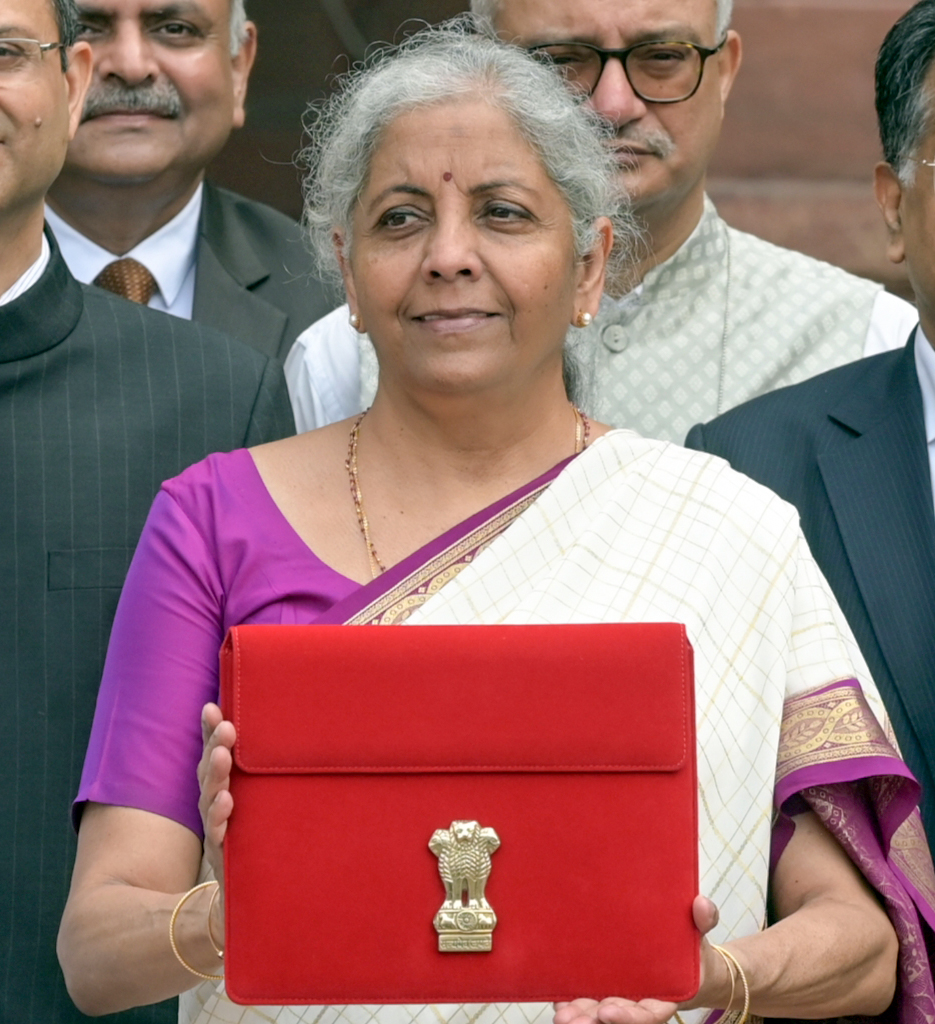In the past more than two decades since its establishment, BIMSTEC has come a long way in distinguishing itself as a group with a vision for collective advancement, writes Nihar R Nayak
India hosted the 2nd BIMSTEC Foreign Ministers’ Retreat on July 11, 2024. This event was particularly significant as it was the first gathering of its kind since the BIMSTEC Charter came into effect on May 20, 2024, marking a pivotal moment in the organisation’s evolution.
The meeting saw the participation of foreign ministers from all member countries, with the exceptions of Nepal and Sri Lanka. Nepal was represented by its Foreign Secretary due to an unforeseen political situation, while Sri Lanka was represented by the Minister of State for Foreign Affairs, Tharaka Balasuriya.
The retreat aimed to strategize on enhancing and expanding BIMSTEC’s activities, such as capacity building and economic cooperation, which have become increasingly urgent in light of contemporary geopolitical developments and emerging global challenges. Additionally, the meeting sought to set the agenda for the upcoming BIMSTEC Summit.
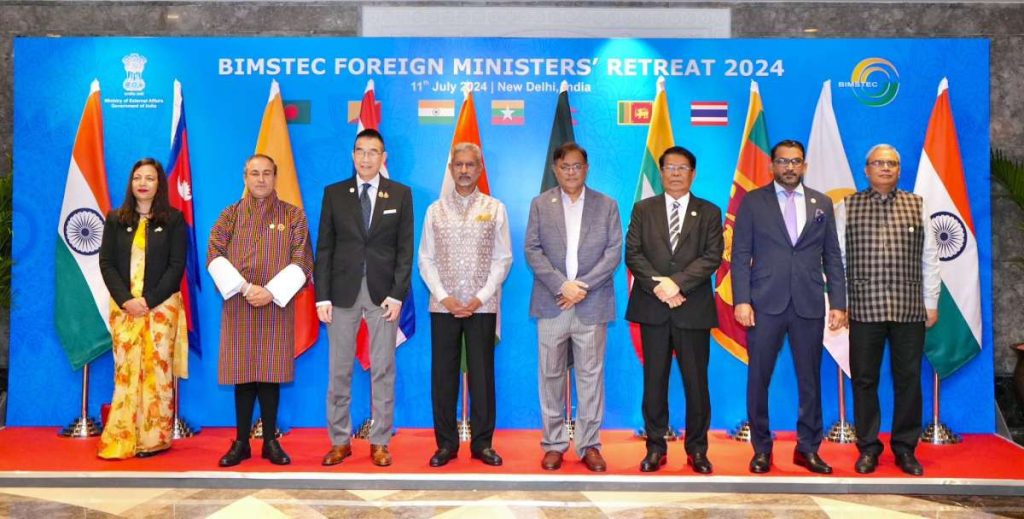
Significance of the meeting
The meeting assumes significance for several reasons:
First Regional Meeting Post-Modi 3.0: This was the first regional meeting hosted by New Delhi following the formation of the Modi 3.0 government. Given the emerging global and regional challenges, it was imperative for member countries to hold an annual meeting. The first edition of the BIMSTEC Foreign Ministers’ Retreat was held in Bangkok, Thailand, on July 17, 2023.
Dialogue on Organisational and Regional Issues: The member countries sought to discuss organisational and regional issues following the adoption of the BIMSTEC Charter. This dialogue was crucial for setting the future direction of the organisation.
Backdrop of Developments in Myanmar: The meeting took place against the backdrop of significant developments in Myanmar, where the military junta was facing setbacks against dozens of Ethnic Armed Organisations (EAOs).
The instability in Myanmar poses a major challenge for BIMSTEC, as it threatens numerous developmental and connectivity projects aimed at strengthening ties within the group. Just a day before the meeting in Delhi, the military junta in Naypyidaw lost control of Naungcho, a major town along a trade highway to China in the northern Shan State, to the Ta’ang National Liberation Army.
Preparatory Meeting for Upcoming Summit: This retreat served as a preparatory meeting for the forthcoming BIMSTEC Summit, which will be hosted by Thailand in September 2024. It provided an opportunity for members to exchange ideas openly, candidly, and fruitfully, setting the stage for more structured and comprehensive discussions at the summit.
This retreat can be viewed as a crucial step towards reinvigorating regional cooperation under the BIMSTEC framework. The absence of high-level representatives from Nepal and Sri Lanka underscores the political complexities within the region, but their presence through senior officials signifies a continued commitment to the BIMSTEC process.
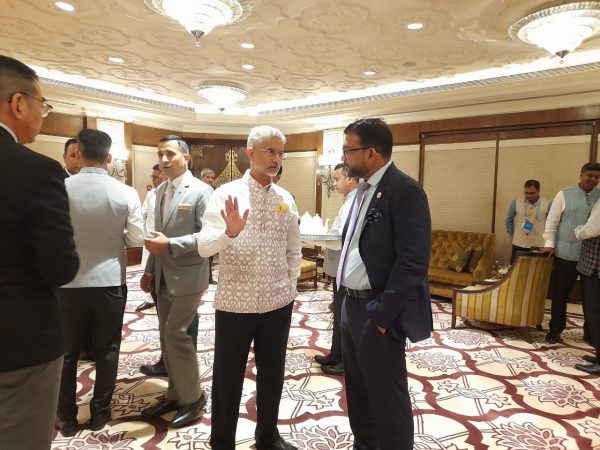
Key achievements of BIMSTEC
Established in 1997, BIMSTEC has distinguished itself as a sector-driven grouping, with each member nation leading specific sectors, reflecting their expertise and commitment to collective advancement.
Over the last 25 years, it has emerged as a robust regional cooperation mechanism with several institutional frameworks addressing common regional issues.
Some of the key achievements include:
1. Adoption of the BIMSTEC Charter: Officially adopted in May 2024, the charter provides a structured framework for the organisation’s functioning and objectives.
2. BIMSTEC Master Plan for Transport Connectivity: Completed in 2022, this plan aims to enhance regional connectivity through improved transportation infrastructure.
3. BIMSTEC Convention on Cooperation in Combating International Terrorism, Transnational Organised Crimes, and Illicit Drug Trafficking: This convention, which came into force in December 2009, strengthens collaborative efforts in addressing these critical issues.
4. Establishment of the BIMSTEC Secretariat: Located in Dhaka, Bangladesh, the secretariat was established in September 2014 to facilitate coordination and implementation of BIMSTEC activities.
5. Framework Agreement on the BIMSTEC Free Trade Area:Signed on February 8, 2004, this agreement aims to promote trade liberalisation and economic integration within the region.
6. BIMSTEC Convention on Mutual Legal Assistance in Criminal Matters:This convention facilitates legal cooperation among member countries in criminal matters.
7. Memorandum of Association on the Establishment of BIMSTEC Technology Transfer Facility: This memorandum promotes technological collaboration and innovation across member states.
In addition, BIMSTEC has established several centers and institutions, including the BIMSTEC Energy Centre (BEC), the BIMSTEC Weather and Climate Centre, the BIMSTEC Tourism Information Centre, the BIMSTEC Tourism Fund, and the BIMSTEC Centre for Poverty Alleviation.
On February 6, 2024, India organised the first BIMSTEC Aquatics Championships.
Moreover, trade, technology, economic development, and connectivity have been core objectives of BIMSTEC. The group has been negotiating over critical issues such as the Motor Vehicles Agreement, Maritime Transport Cooperation, Grid Interconnection Master Plan Study, and the establishment of the BIMSTEC Cultural Industries Observatory in Bhutan and the BIMSTEC Energy Centre in India.
Issues discussed
The two-day event provided an opportunity for the member countries to broaden and deepen cooperation across sectors, including security, connectivity, trade, health, digital infrastructure, and investment in the Bay of Bengal region and littoral areas.
The discussions focused on capacity building, organisational expansion, and societal exchanges.
Additionally, the members weighed the merits of new mechanisms in the light of the newly adopted charter.
On the sidelines of the event, India’s Foreign Minister had one-on-one meetings with Myanmar’s Deputy Prime Minister and Foreign Minister U Than Swe, and his Thai counterpart. Following these meetings, he remarked, “Our discussions focused on the connectivity projects, so crucial for the future of BIMSTEC. We also exchanged views on border stability and humanitarian assistance.”
The visiting Foreign Ministers also paid a joint call on Prime Minister Narendra Modi who emphasised the role of BIMSTEC as an engine for economic and social growth.
He reaffirmed India’s commitment to a peaceful, prosperous, resilient, and safe BIMSTEC region, highlighting its significance to India. He also expressed India’s full support to Thailand for the upcoming BIMSTEC Summit.
BIMSTEC and India
India, as a founding member of BIMSTEC, holds a pivotal position in linking South Asia and Southeast Asia.
Strategically and economically, BIMSTEC assumes significant importance for India.
At the inaugural session of the retreat, India’s External Affairs Minister, Dr. S. Jaishankar, articulated the importance of BIMSTEC: “For India, BIMSTEC represents the intersection of its ‘Neighbourhood First’ outlook, the ‘Act East Policy,’ and the ‘SAGAR’ vision.
Each of these endeavours has been proposed with a specific focus on the Bay of Bengal, where collaborative potential has long remained under realised.”
Even if SAARC was to revive, India cannot afford to neglect BIMSTEC due to its strategic relevance. Most BIMSTEC member countries share borders with the Bay of Bengal, a region of immense strategic importance on India’s eastern flank.
Additionally, several of these countries are members of the Indian Ocean Rim Association (IORA) and the Indo-Pacific framework, further underscoring the strategic importance of BIMSTEC for India.
Strategically, a functional BIMSTEC would counteract Chinese influence in the region, particularly in Myanmar. Myanmar, with its history of conflict, has recently seen China attempt to consolidate its political presence by positioning itself as a peace broker. A robust BIMSTEC could help mitigate this influence.
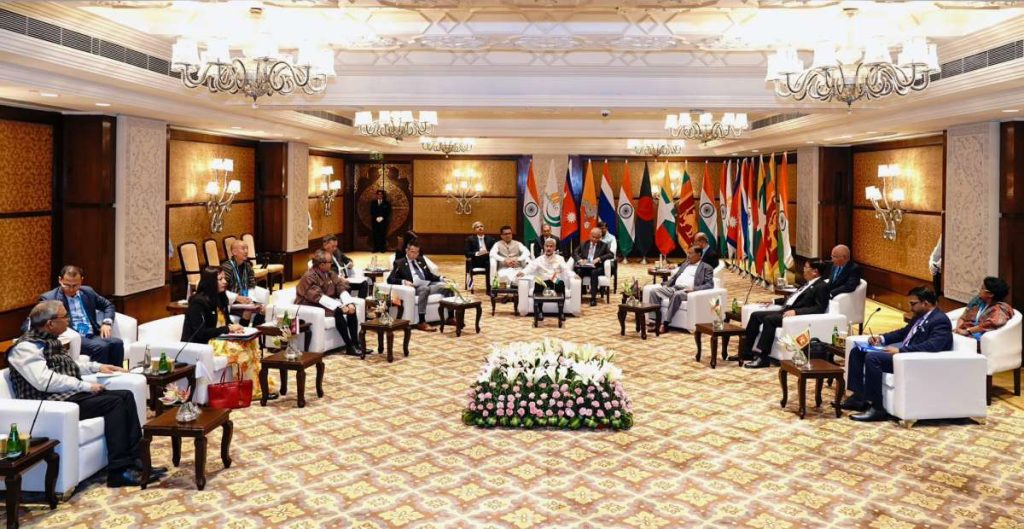
Conclusion
BIMSTEC has immense potential to contribute to rapid economic growth, connectivity, and infrastructure development in the region. Unlike other regional cooperation frameworks, BIMSTEC does not focus on security, geography, or political issues but rather on technical and economic sectors of mutual interest.
Historically, the member countries have enjoyed strong commercial and cultural linkages, and there are no significant bilateral disputes among them, reducing the risk of competing power dynamics.
To realise its potential, BIMSTEC must overcome current political reluctance among its members. This includes addressing issues such as inter-state migration resulting from conflicts in Myanmar.
For BIMSTEC to become a functional and effective organisation, member countries need to actively explore and harness the region’s potential. This involves committing to collaborative projects, investing in infrastructure and connectivity, and fostering a culture of mutual support and understanding.
(The writer is a Research Fellow at the MP-IDSA, New Delhi; views expressed here are his own.)
ALSO READ:






